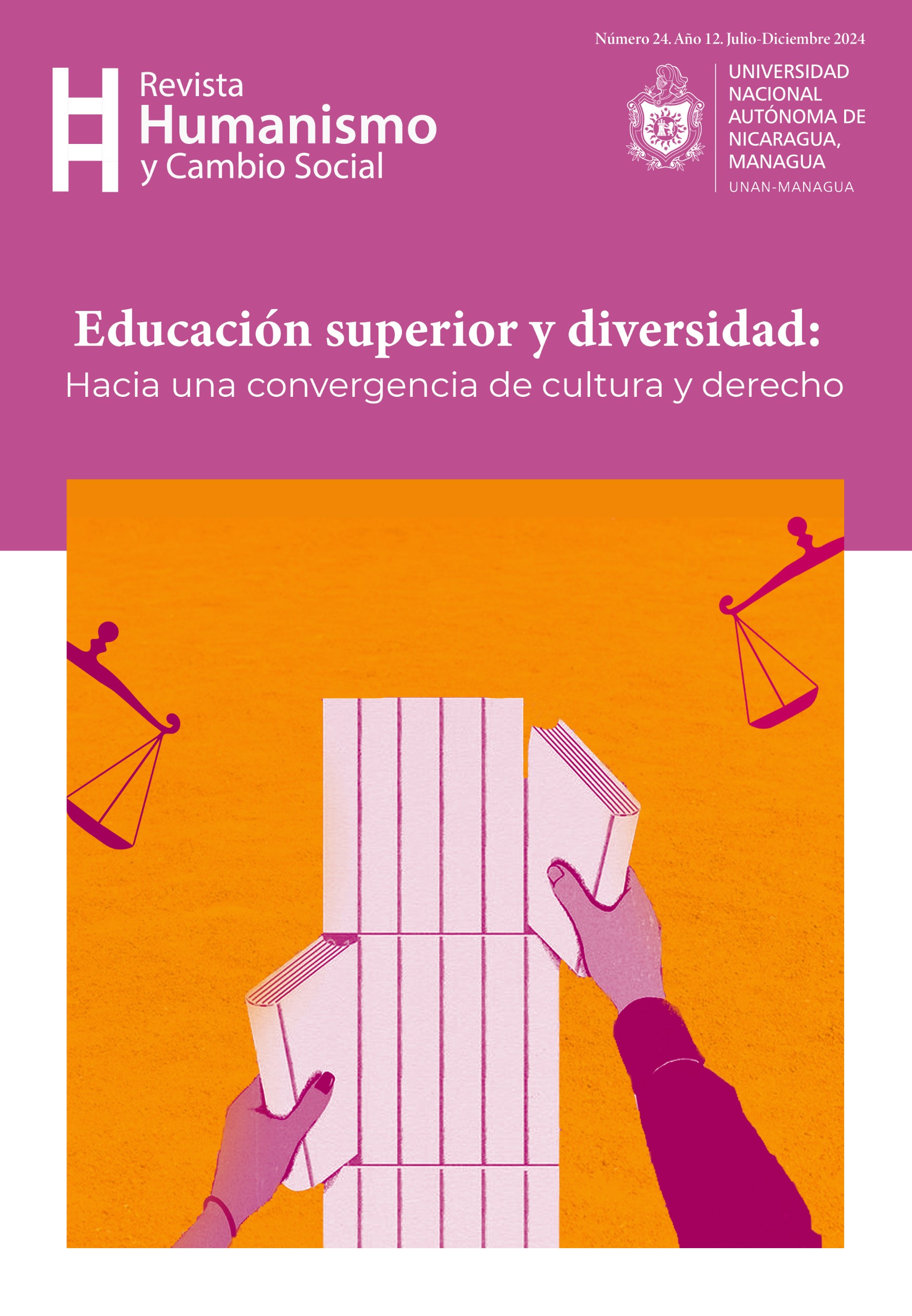Precautionary Measures in the Claim of Care and Parenting in Family Law (Procedures for Their Application)
DOI:
https://doi.org/10.5377/hycs.v1i24.19895Keywords:
Precautionary measure, care and upbringing, best interests of the child, family procedural lawAbstract
This research aims to analyze the precautionary measures applied in the claim for the care and upbringing of children. To this end, doctrinal positions and the national legal framework regulating these measures were studied. Additionally, the procedural treatment of these measures under Nicaragua’s family law is described. The study was conducted from a documentary, descriptive, cross-sectional, and explanatory research perspective due to its depth. Therefore, through reasoned analysis, the following conclusions were reached: The legal regulation of precautionary measures in family procedural law clearly establishes the guidelines and foundations for the protection of children and adolescents, as well as the principles and procedures for their application. The study emphasizes the importance of proportionality, necessity, and suitability of the measure, as well as the principle that precautionary measures may be requested by one of the parties or ordered ex officio when the court deems it necessary to uphold the best interests of the child or adolescent within a legal process. These principles aim to ensure a balance between the protection of rights and justice in the legal process. Precautionary measures can be applied both preventively and to correct situations that may arise during the process.
Downloads
References
Atienza, M. (2014). La dogmática jurídica como tecno-praxis. En Á. Núñez Vaquero (Coord.), Modelando la ciencia jurídica (pp. 115-159). ISBN 978-612-4218-08-8.
Constitución Política de Nicaragua [Const]. Arto. 34. 18 de febrero 2014 (Nicaragua).
Díaz, A, Lara, M. & Reyes M (2004). Efectividad de las medidas cautelares en el proceso de familia en la Zona Oriental 2000-2004. [Tesis de Licenciatura. Universidad de El Salvador]. Repositorio Institucional de la Universidad de El Salvador. DOI: https://doi.org/10.51197/lj.v3i3.4
García, J. (2020). La revisión documental en la investigación académica. Editorial Académica.
Gobierno de Reconciliación y Unidad Nacional. (2021). Plan Nacional de Lucha Contra la Pobreza y para el Desarrollo Humano 2022-2026. https://www.pndh.gob.ni/documentos/pnlc-dh/PNCL-DH_2022-2026(19Jul21).pdf
Hernández Sampieri, R., Fernández Collado, C., & Baptista Lucio, P. (2016). Libro.
Metodología de la investigación. México DF Mc Graw Hill. https://metodologiaecs. wordpress. com/2013/02/20/librometodologia-de-la-investigacion-5ta-ed-sampieri.
Ley No. 870, de 2014, por la cual se aprueba el Código de Familia. La Gaceta No. 190 del 8 de octubre de 2014. Nicaragua. https://www.unicef.org/nicaragua/media/566/file/C%C3%B3digo%20de%20la%20Familia.pdf
Maturana, C. (2017). Justicia de familia. El rol del juez reforma procesal a una nueva justicia. Editorial Hammurabi.
https://www.academia.edu/37796951/Indice_Medidas_cautelares_en_los_procedimientos_de_familia_pdf.
UNICEF. (1989). Convención sobre los Derechos del Niño. https://www.unicef.org/es/convencion-derechos-nino/texto-convencion
UNAM. (2017). Las medidas cautelares en el derecho procesal de familia. Universidad Nacional Autónoma de México.
Downloads
Published
Issue
Section
License

This work is licensed under a Creative Commons Attribution-NonCommercial-ShareAlike 4.0 International License.




